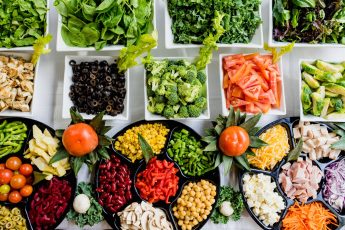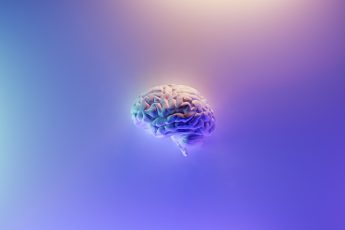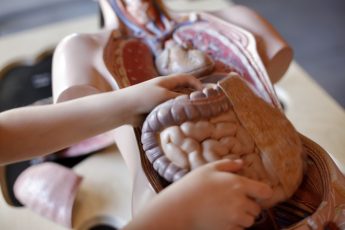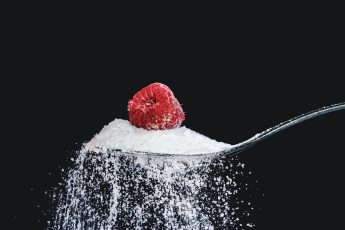Food as a diagnostic aid
Everyone has probably experienced a sudden craving for a particular food in their life – that moment when all you want is a slice of pizza (or hamburger, or chocolate) and nothing else. This craving is very common, but why do we experience it, and what does it mean? Unfortunately, we don’t usually crave foods like kale or apples. More often than not, we crave foods rich in fats, carbohydrates, and sugar.
Often, cravings are emotional rather than nutritional: “comfort foods,” such as sweets or baked goods, release “pleasurable” chemicals into the brain. However, some studies show that specific cravings and eating habits can indicate health problems. Here are five intriguing examples.
Constant craving for the same food
Unusual changes in eating habits may be an early sign of dementia. A study published in 2015 looked at changes in the eating habits of people with dementia and found that nearly half of all patients with mild Alzheimer’s disease showed some changes in their food preferences. If you notice a sudden craving for certain foods or have an overly persistent craving for sweets, it may be worth discussing with your doctor.
The most significant shift in food cravings was observed in the moderate stage of the disease. In addition to the fact that Alzheimer’s patients preferred different foods than usual, they tended toward sweets and candy and gave a solid flavor to their meals with soy sauce.

The researchers noted that many patients had two opposite symptoms, “increased appetite” and “loss of appetite.” they expressed the change in what they wanted to eat and how hungry they were. The difference in appetite may also be an early sign of dementia.
Loss of appetite may result in depression, as nearly 70% of people with Alzheimer’s disease also have some depressive symptoms. As for increased appetite, it may be a sign of repetitive behavior caused by severe memory impairment.
Salt craving
It is sporadic that a person does not get enough salt from their diet, at least in developed countries. Most modern residents consume more sodium per day than recommended. Studies show that intense craving for salt may indicate Addison’s disease.
This disorder, also known as primary adrenal insufficiency, is a disorder of the adrenal glands, the organs on top of the kidneys. They produce two major hormones: cortisol, which helps us respond to stress, and aldosterone, which maintains normal blood pressure.

When Addison’s disease damages the adrenal glands, they do not synthesize enough hormones. Without treatment, this condition can lead to a dangerous drop in blood pressure. Other symptoms are fatigue, muscle pain, nausea, and weight loss. If you experience unusual and persistent cravings for salty foods, discuss this with your doctor, mainly if it occurs in the background of any of the other symptoms mentioned above.
Excessive thirst
Drinking plenty of water throughout the day is beneficial and encouraged. However, constant craving for water is one of the early signs of diabetes. It is a much more pronounced thirst than usual, accompanied by frequent urination.
When you have diabetes, too much glucose builds up in your blood, which means that your kidneys have to work very hard to filter out and absorb the sugar. If the kidneys stop doing that, the excess glucose is sent to the urine, drawing fluids out of the tissues and leaving them dehydrated. The catch is that the more you drink to quench your thirst, the more often you have to urinate.
Chocolate craving
A chocolate craving is not unusual-after all, and it’s many people’s favorite sweet treat. But if you can’t help it, it could mean that you’re deficient in magnesium. This mineral is responsible for many bodily functions, from muscle and nerve to blood sugar control and energy production. You can detect magnesium deficiency with a blood test.
Chocolate, of course, is not the only good source of magnesium. Leafy greens, legumes, nuts, and fish are also rich in this mineral. We don’t usually crave these foods because, unlike chocolate, they contain no sugar or caffeine.

Another possible explanation for the chocolate craving is a lack of B vitamins, which play a significant role in the body’s cellular processes. B-complex vitamins help the body convert food into energy, create new blood cells and maintain healthy skin and other tissues. When you eat chocolate, it gives a needed boost to your mood. Sugar and caffeine stimulate dopamine secretion in the brain, and glucose levels also rise, making you feel a rush of energy.
To treat a B vitamin deficiency, your doctor will likely recommend taking supplements or increasing your intake of certain foods, depending on the specific vitamin you are deficient in.
French fries and potato chips
French fries and potato chips are two of the most commonly cited food cravings. Cravings for such fatty foods may mean that the body is low in Omega-3 fatty acids, which are known to improve cardiovascular health. The body cannot produce omega-3 fats, and you can only obtain them from the diet.
There are many other telltale signs of omega-3 deficiency: fatigue and sleep problems, difficulty concentrating, joint and leg cramps, and cardiovascular problems. And, of course, there are much healthier sources of fat than French fries, such as salmon, nuts, avocados, and olive oil.
Sources
- https://newsinhealth.nih.gov/2017/05/how-your-eating-habits-affect-your-health
- https://advancedbodyscan.com/how-your-eating-habits-affect-your-health-how-to-change-them/
- https://www.nih.gov/news-events/nih-research-matters/how-dietary-factors-influence-disease-risk
- https://health.clevelandclinic.org/7-sneaky-signs-of-an-unhealthy-diet/











